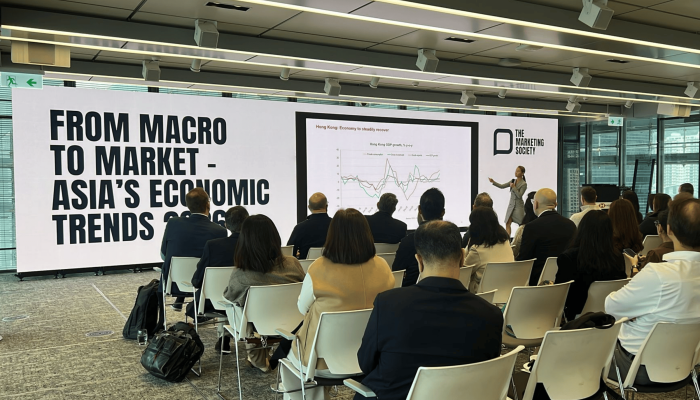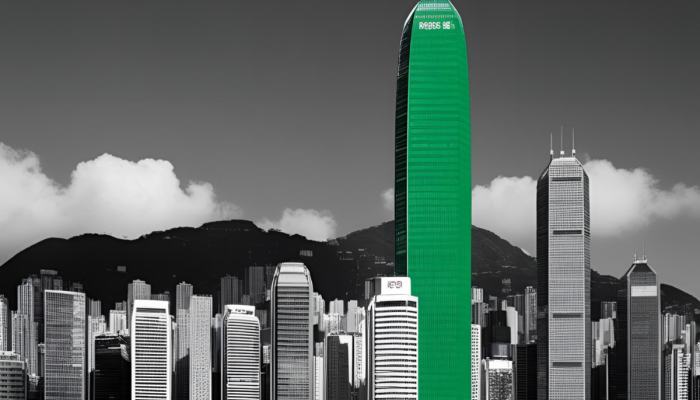Despite the advancements and movements championed by women today, many still face obstacles when it comes to achieving gender parity. Even in the most advanced of nations, women still take a back seat. In a recent study by WPP, about 71% of the network’s upper pay quartile in the UK comprised of men and 29% by females.
Meanwhile according to the 2017 Global Gender Gap report, which surveyed 144 countries including Singapore, Malaysia, Indonesia, the Philippines and China, the gender gap in terms of economic participation and political empowerment, East Asia and the Pacific will take 161 years to close. This was despite all world regions recording a narrower gender gap, which now stands at 68.0%, compared to 11 years ago.
In line with the theme for this year’s International Women’s Day (IWD), #PressforProgress, A+M reached out to women leaders in Malaysia to share how they think the marketing industry can do more for women.
Grace Chan, head of brand marketing, Celcom Axiata
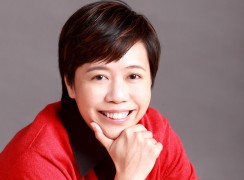 In a conversation with A+M, Chan said that female leaders, like all leaders, face issues both business and people-related. The notion of “male or female bosses”, as such, should not be perpetuated as it reinforces the biases. She personally prefers the term “people leader” to remind everyone that leadership in the current context is about motivating and developing people.
In a conversation with A+M, Chan said that female leaders, like all leaders, face issues both business and people-related. The notion of “male or female bosses”, as such, should not be perpetuated as it reinforces the biases. She personally prefers the term “people leader” to remind everyone that leadership in the current context is about motivating and developing people.
“In fact, the notion of bosses is outdated. As a senior person in the organisation, our role is to break down barriers and develop capability down the line,” she said. Chan added that being a female or male no longer matters when it comes to leadership. The company thrives on and encourages diversity, as only then will there be fresh ideas. She added:
“The marketing industry should stop objectifying women in any way and lead by example in providing equal opportunities to everyone.”
“Discuss issues, not gender,” she said.
Rather than making clusters out of gender and further indulging in discussing broad topics such as “doing more for women”, Chan said the industry can discuss specific issues, communities or social causes. This includes having flexible work hours for working mothers up to two years post-delivery. Celcom, for example, has introduced “flexi-time” for anyone who does not want to work full-time.
Chan believes that if the #MeToo movement maintains momentum, it can guide the world into an era where women would be less vulnerable and brings about a very positive change, especially in regions where women’s rights are a fable.
For women who aspire to become bosses, Chan stresses the importance of staying above emotions when making decisions, and cultivating a sense of balance in everyday work life of serving the business and the teams. They should also provide employees a safe space to speak openly without being judged.
Linda Hassan, head of marketing, Domino’s Pizza Malaysia and Singapore
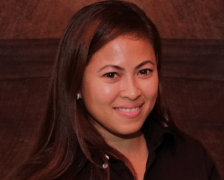
Hassan views being a female boss as an opportunity rather than a challenge. She associates females as having a knack for details and an analytical mind, which contributes to them making well-informed decisions. Additionally, she believes that the natural female ability to juggle so various things personally translates to using the same skills set at work, where women have to juggle between projects and deliverables.
“Where I work, I ensure everyone in the system understands the different personalities and how to deal with the differences as to not fall into stereotyping,” Hassan said, adding:
“Leadership is no longer gender specific, but is driven by ability and expertise.”
She added that there are now tools, knowledge platforms and communication platforms that enable women to cut through barriers, and allow a variety of leadership style to flourish. As a female leader, it is important to understand the style that suits oneself, the team and organisation to ensure that results are achieved.From her observation and personal experience, the marketing industry has plenty of women talent and she believes this is due to their attention to details and the ability to provide creative and holistic solutions. However, she hopes that more young women talent are groomed and mentored by the seniors in their industry to ensure that the talent among rising young women continues to grow.
To rise to the top, Hassan said “self-realisation is essential” for women to understand their strengths and weaknesses. The ability to understand the team’s dynamics and the organisation’s needs is a good starting point. Also, looking into opportunities on where the organisation can improve and taking creative and proactive steps in addressing these issues in the organisation, will also bring value to women working up the ladder in their organisations, she added.
“Women at the work place should not feel neither intimidated nor inferior but be proud to stand tall next to their male colleagues,” she said.
Nicole Tan, country director, Facebook Malaysia

In the first few years of becoming a manager, Tan told A+M that she struggled with a common perception that as a female boss, one needs to be aggressive and demanding. As such, one ends up adopting what’s considered “masculine” styles of management to be taken seriously, and feel included in predominantly male circles in a corporate environment. Sometimes, criticism, especially from other women, can be hurtful and over time it can be easy to accept this as “part of the game”, Tan said.
“I realised that being a good leader has nothing to do with gender but more of what values you hold, what culture you build and what examples you set,” she said. In addition, when criticism is coupled with good intent, feedback can be a gift. As an ally to others, her goals are to support, empower and stand up for others who may not feel they have a voice or a seat at the table. Essentially, if you see something, say something, Tan said.
She is of the view that with mentoring and support, more opportunities can be created for women in the marketing industry. Companies can promote and increase diversity through various initiatives that strengthen and connect a company’s community of female employees, enabling them to share their experiences about being a woman in the workplace, whilst at the same time, give them a platform to learn from one another.
She added that organisations need to widely recognize diversity and inclusion as important and competitive strengths for companies to help drive innovation and progress. Diversity is core to Facebook’s culture and it has rolled out initiatives such as Women’s Leadership Day and #SheMeansBusiness to inspire and empower women entrepreneurs. Tan said:
“I think the best thing a women leader can do is to focus on being a good leader and being an ally to others.”
She said that women leaders have the power to exemplify what good leadership looks like and in light of IWD, she wants to raise awareness of how women can be more supportive of other women at the workplace. Her advice is to be kinder to working mothers and supporting her ambitions. “Be the one that says I believe you can. When women succeed, we all win,” Tan said.
Schrene Goh, head of marketing, Malaysia Airlines
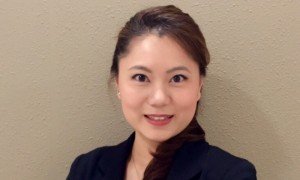
Commenting on her personal experiences, Goh said the biggest challenge for her is juggling between family and a “demanding job” in the aviation industry, that sometimes requires ad hoc duty travel. Also, as a female boss, people usually have the preconception that they are either incapable or emotional, as well as being able to get their way with a pretty face. Goh said:
“Women have to work doubly hard to prove that they are capable and rational in decision-making and not an emotional being.”
“As a matter of fact, the women in the marketing industry is striving and helming leadership positions. We hope that the marketing industry will be the lighthouse to show other industries that women is equally capable,” she said. Goh added that the social media movements such as #MeToo have provided women with a platform to allow their voices, which were previously ignored, to be heard.
She said this enables women to speak up and be heard against any prejudice, and believes such movements have given women the courage to pursue their ambitions and reach their full potential. Goh advises aspiring women leaders to always stay on top of the game and be very focused on what they want to achieve, regardless of what others have to say about them being a female boss.
“Be passionate in whatever you do and build solid skill set while trying to stay relevant. And most importantly, find a supportive husband or partner that gives you great encouragement!” she added.
Geraldine Wong, country head of marketing, Uber Malaysia
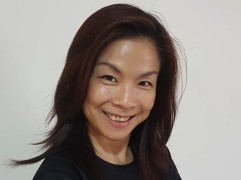
As the country head of marketing, Wong told A+M in a conversation that she finds it tough to juggle among her family, her love for kickboxing and managing a team in a fast-paced environment at Uber. As a leader, she believes in having a clear vision, trusting that her team will be authentic and empathetic with one another, as well as adapting to changes and being agile enough to embrace them. She also ensures everyone on her team feels they have a mentor they can trust, and believes in collaborating across teams and partners to drive efficiency and scale for success.
The industry needs to have a firm commitment that anyone, regardless of gender, race or age, should have equal opportunity to be successful, she said. “We must be committed to celebrating merit, capability and character first and foremost – and we should be agreeing and applying these standards consistently across all industries,” Wong added.
She said that the marketing industry is the ideal platform for this, as it ultimately celebrates the idea and its success metrics, regardless of who it came from. She also hopes to see the industry dial up the awareness on having more diversity in the workplace. Wong added:
“Our day job is to promote ideas and change behaviour – shouldn’t we be leading the charge in this case?”
Lastly, every woman in a leadership role should do their part in making the workplace better for other women. For Wong, this means lending one’s voice to champion efforts to support other women in the workplace. She believes these efforts should be emphasised all the time and not just during International Women’s Day.
Wong advises women to not be afraid to stand out and to not feel intimidated. It takes experience to learn how to balance the hard and soft skills of leadership; of learning how to have empathy and endurance. Even as a leader, one is always learning, Wong said.
“Being a leader means you can’t run away from tough times – you’ve got to learn how to manage your intelligence quotient, emotional quotient and learning quotient,” she added.
This article originally appeared on marketing-interactive.com
